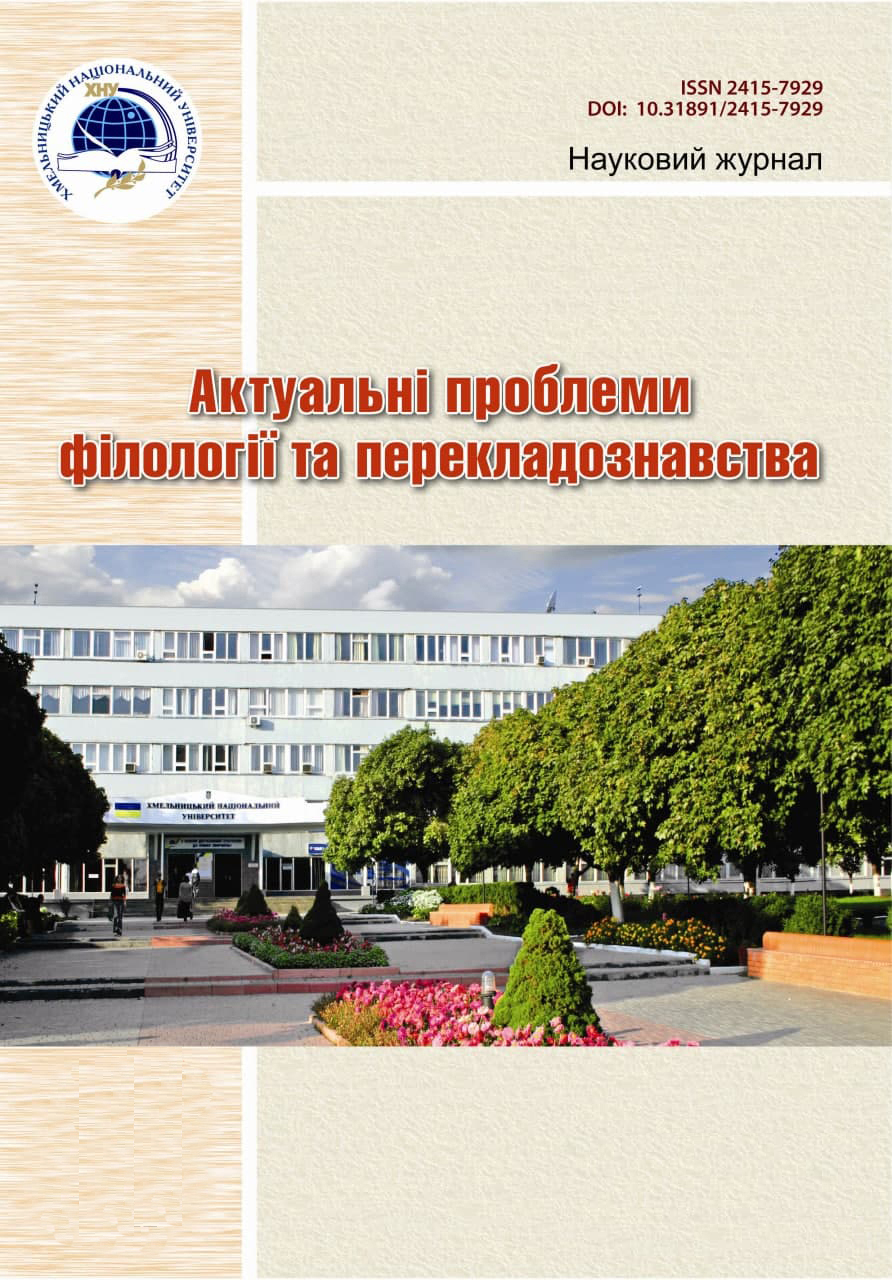PHONETIC POLONISMS IN UKRAINIAN OFFICIAL BUSINESS WRITTEN MONUMENTS OF THE XIV – XV CENT.
DOI:
https://doi.org/10.31891/2415-7929-2020-20-1Keywords:
official business written monuments, Old Ukrainian, borrowings, polonism, phonetic variationAbstract
The article studies phonetic polonisms in the Ukrainian official business written monuments of the XIV – XV centuries, which spread due to the Ukrainian-Polish language contacts, especially noticeable from the end of the XIV century. In the Ukrainian official business texts of the late Middle Ages, the influence of the Polish language on both the vowel system and the consonant phoneme system may be traced, in addition, changes in the groups of phonemes are revealed. The influence of the Polish language on the vowel system is reflected in the change of e>o after fricatives in verb forms (ображоному, позычоныхъ, положона, принужоный). Certain effects of the Polish-speaking interference are found in the phonetic structure of adjectives (kiiowskyi, lithewski). Changes in sibilant and fricative consonants under the Polish-language influence rarely occur in words (вшелякии, конецн, треци, цюдность). Numerous changes were revealed in the groups of phonemes, in particular, the reflexion of the combinations *tоrt, *tоlt, *tеrt, *tеlt, which in the East Slavic languages developed into the sound combinations oro, olo, ere, ele instead of the former or, ol, er, el between two consonants. Whereas in the West Slavic languages, including Polish, the reflexion of ancient combinations was accompanied by the reduction of vowels before sonorants, therefore the continuatives tоrt → trot, tоlt → tlot, tеrt → tret, tеlt → tlеt, appeared, which is shown in the Ukrainian letters of the XIV-XV centuries (Влодисла(в), кролици, премы(с)ки, Млчко). Pleophonic forms prevail in written monuments, though such obvious signs of West Slavic linguistic influence reflect the linguistic parallelism of that time.
The revealed Polish influences contributed to the development of phonetic variability of the Old Ukrainian language of the XIV-XV centuries, given the fact that the sound system of the language, compared to other spheres, was more often subjected to swaying. Polish language borrowings in written monuments of other historical periods require additional research effort, which will become the prospects for further scientific studies.
Downloads
Published
Issue
Section
License
Copyright (c) 2020 I. TSARALUNGA (Автор)

This work is licensed under a Creative Commons Attribution 4.0 International License.

